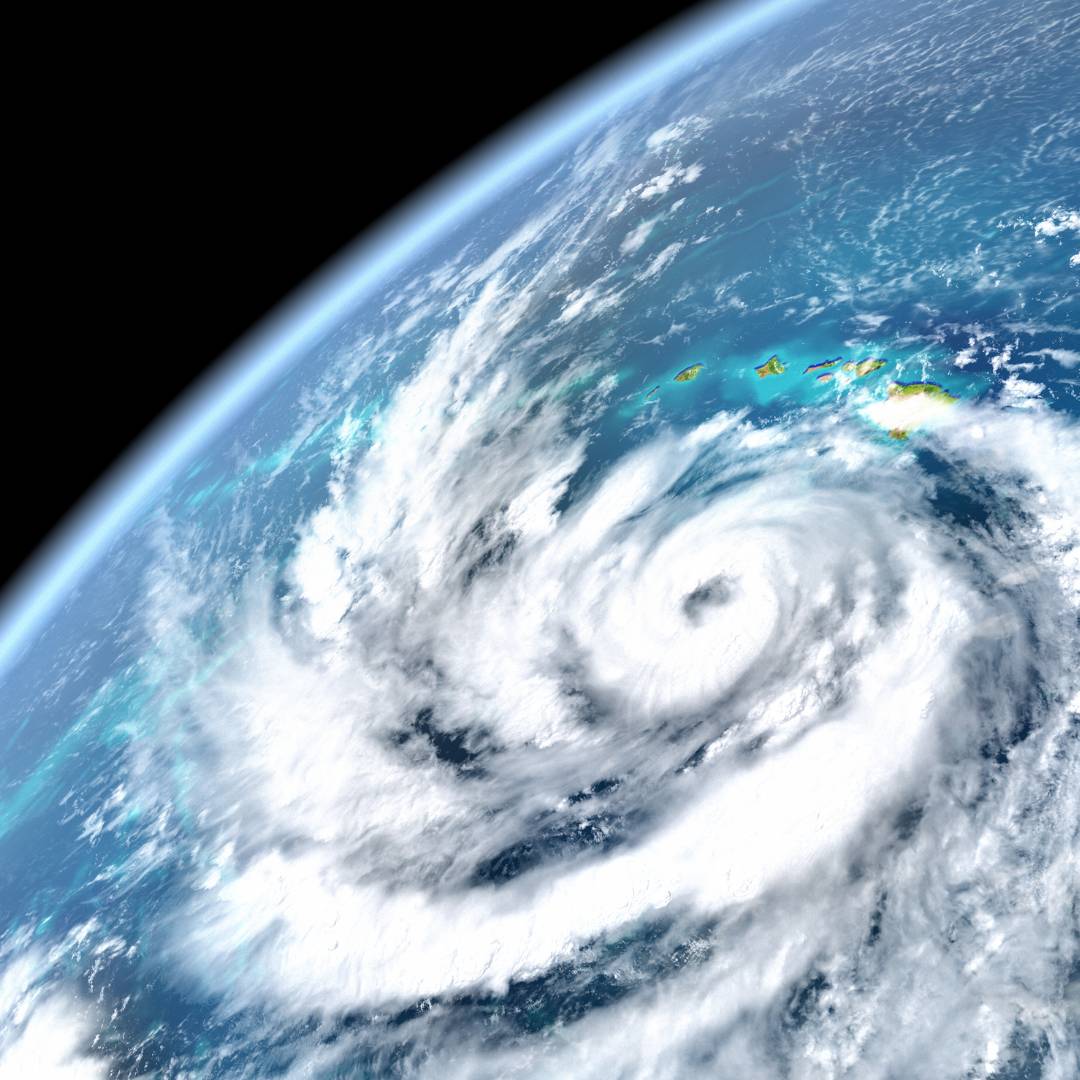Scientists alarmed by rapid global warming before El Niño

This April has set a new record. Never before has the sea surface temperature been as high as it is now. Scientists do not yet know exactly why this is happening, but fear that the weather phenomenon El Niño will further intensify the rapid warming by the end of next year. A new study by oceanographer Karina von Schuckmann et al., which was recently published in the journal "Earth System Science Data", describes the unexpectedly rapid warming of the Earth's surface, especially the sea surface, over the last fifteen years.
Heat is stored as energy
In this time interval, the Earth has warmed almost as much as in the previous 45 years, with most of the extra energy going into the oceans. "The Earth's climate system is out of energy equilibrium, and in recent decades heat has continuously accumulated and warmed the oceans, land, cryosphere and atmosphere," writes Karina von Schuckmann et al. in the study. The Earth stores heat as follows:
- 2% in the atmosphere
- 5% on land
- 4% in the cryosphere
- 89% in the oceans, with 52% falling at depths of 0-700m, 30% from 700-2000m and 8% deeper than 2000m
While land has warmed by around 1.5 degrees Celsius compared to pre-industrial levels, the average surface temperature of the world's oceans has risen by around 0.9°C, including 0.6°C in the last 40 years alone. "The reason for this is that much more energy is needed to heat water than land, and the oceans absorb the heat far below their surface," says the BBC. However, temperatures have risen massively in some places; for example, sea surface temperatures off the east coast of North America in March 2023 were 13.8 °C higher than the average for the period 1981-2011.
The reasons are not yet clear
"It is not yet clear why such a rapid and enormous change is taking place," said Karina von Schuckmann, the lead author of the new study and oceanographer at the research group Mercator Ocean International.
 "We have doubled the heat in the climate system in the last 15 years. I don't want to say it's climate change or natural variability or a mixture of both, we don't know yet. But we are seeing this change," she is quoted as saying by the BBC. What is exciting is that the "abstract" of the study does indeed state that the warming was caused by humans.
"We have doubled the heat in the climate system in the last 15 years. I don't want to say it's climate change or natural variability or a mixture of both, we don't know yet. But we are seeing this change," she is quoted as saying by the BBC. What is exciting is that the "abstract" of the study does indeed state that the warming was caused by humans.
"According to the Sixth Assessment Report of Working Group I of the Intergovernmental Panel on Climate Change, this warming of the planet has been caused by humans over several decades and is leading to unprecedented and binding changes in the Earth system with adverse impacts on ecosystems and human systems. The Earth's heat inventory provides a measure of the Earth's energy imbalance (EEI) and makes it possible to quantify how much heat has accumulated in the Earth system and where the heat is stored. Here we show that the Earth system has continued to accumulate heat, namely 381±61 ZJ in the period from 1971 to 2020," says Karina von Schuckmann in the study itself.
The BBC article speculates that the reduction in aerosols due to new regulations to reduce sulphur emissions from shipping may have contributed to the rapid warming because these aerosols contribute to heat being reflected into space.
Effects of ocean warming

- Rising sea levels: Warmer water can significantly accelerate the melting of glaciers in Greenland and Antarctica, which flow into the oceans. The resulting rise in sea levels leads to habitat loss and severe salinization of agricultural land.
- Species are dying out: More frequent and more intense heatwaves in the sea are leading to the mass extinction of marine life. This affects coral reefs, among others.
- More extreme weather: The increased heat at the sea surface means that more water evaporates and more precipitation occurs. In addition, hurricanes and cyclones can absorb more energy and therefore become more intense and last longer.
- Reduced ability to absorb CO2: The oceans currently absorb around a quarter of greenhouse gas emissions. Warmer waters have a lower capacity to absorb CO2. If the oceans absorb less CO2 in the future, more of it would accumulate in the atmosphere, leading to further warming of the air and oceans.
Increased impact due to the El Niño weather phenomenon
 "For fall, winter there is a 90 percent probability of a El Nino' predicted. And if it is an 'El Nino' year, then the probability that there will be a new record in the global mean temperature is quite high," says Leopold Haimberger from the Institute of Meteorology and Geophysics at the University of Vienna in an interview with ORF.at. "The effects on temperature extend up to a few months after the peak of an El Niño, so 2024 will probably be the warmest year in history."
"For fall, winter there is a 90 percent probability of a El Nino' predicted. And if it is an 'El Nino' year, then the probability that there will be a new record in the global mean temperature is quite high," says Leopold Haimberger from the Institute of Meteorology and Geophysics at the University of Vienna in an interview with ORF.at. "The effects on temperature extend up to a few months after the peak of an El Niño, so 2024 will probably be the warmest year in history."
"And maybe we'll be close to 1.5°C days and maybe we'll temporarily go above that," says Hugh McDowell from Australia's Bureau of Meteorology in an interview with the BBC. Scientists say El Niño will potentially disrupt weather patterns around the world, weakening the monsoon and causing more wildfires in Australia. But there are also fundamental concerns that water may be less able to store excess energy as more heat enters the ocean. And there is concern that the heat stored in the oceans will not stay there, the BBC continues.
The consequences of El Niño lead to crop failures and other economic consequences such as price increases due to food shortages, resulting in many social and health problems for the people affected.
The conclusion
All the scientists quoted here agree. We need to get out of fossil fuels and act decisively now. "We still have a window of opportunity to act and we should use it to reduce the impact," Karina von Schuckmann told BBC News.
"The means are always the same, and we have been saying this for many, many years. We simply have to move away from generating energy from fossil fuels," explains Haimberger in the orf.at interview.
Further links:
Study in "Earth System Science Data"






